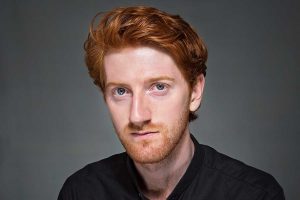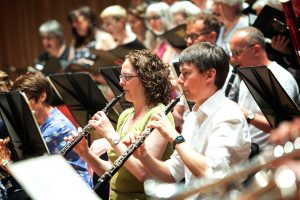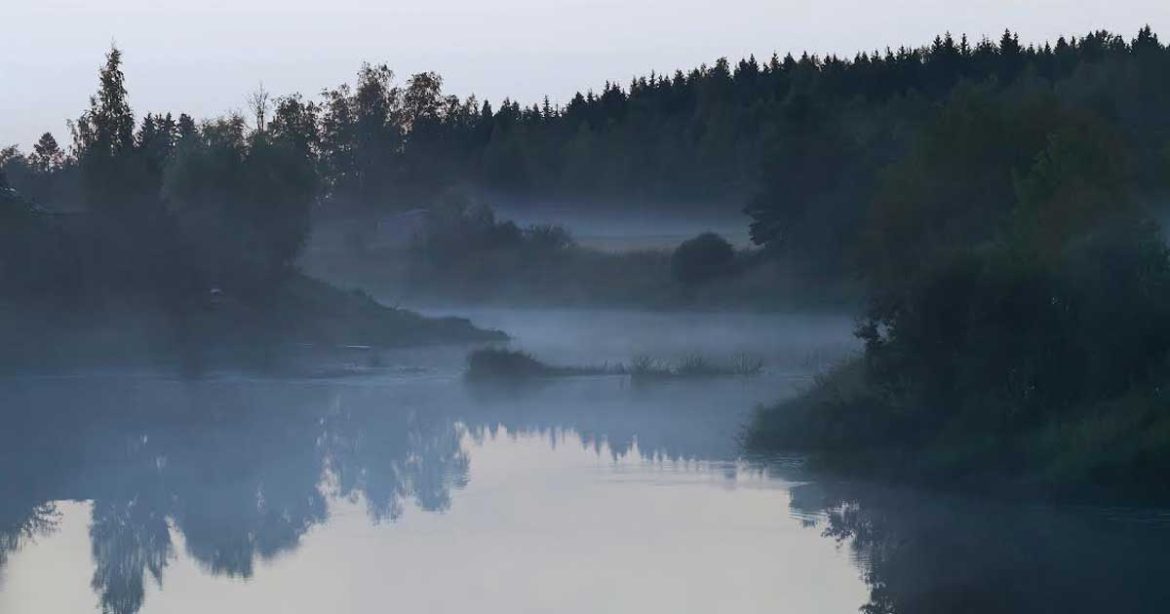Alex Fice speaks to Cambridge Philharmonic’s new musical director, Harry Sever, asking what we can expect from his debut performance
The transition from one musical director to the next is probably one of the biggest changes that any orchestra or choir can undergo – that is, of course, until a pandemic strikes. In spring 2020, Cambridge Philharmonic’s musical director of 14 years, Timothy Redmond, announced that the time had come for him to leave for pastures new, initiating the search for someone to fill his shoes. But very soon after, life as we knew it began to grind to a halt in response to the escalating Covid-19 pandemic, and the usually enjoyable task of finding a new musical director suddenly became infinitely more complicated.

Harry Sever, musical director of Cambridge Philharmonic
Two years on, Cambridge Philharmonic is preparing for the debut concert of its new musical director, Harry Sever, on 19 March at West Road Concert Hall. For Harry, this moment has been a long time coming, after a lengthy audition process and only brief opportunities to work with the orchestra and chorus, often in dramatically restricted circumstances. “I had to do one audition where the chorus wasn’t allowed to sing, so we did Steve Reich’s Clapping Music instead,” recalls Harry. Though Cambridge Philharmonic have come a long way from those voiceless choir rehearsals, safety regulations for West Road Concert Hall dictate that the orchestra and chorus cannot perform in the space at the same time, indicating that they’re not quite out of the woods yet.
Far from being deterred by the ongoing restrictions, Cambridge Philharmonic’s next concert will showcase the talent and adaptability of its performers, who are comprised of professionals, semi-professionals, music teachers and non-professional musicians with a passion for playing music at a very high level. The orchestra will perform Sibelius’ Symphony No 2, and the chorus will sing Vaughan Williams’ Dona Nobis Pacem, with solos by Alison Rose and Tristan Hambleton. Those familiar with the latter piece of music will know that it is usually performed with a full orchestra – trumpets and percussion included – however, to meet the venue’s safety regulations, the chorus will sing to a piano accompaniment by repetiteur Fran Hills instead. Harry hopes that this stripped-back version of Williams’ masterpiece will be just as interesting to the audience as the original, offering the opportunity to experience it in an alternative arrangement. Audiences can also look forward to a bonus performance of Vaughan Williams’ Blake poems, sung by Alison Rose and accompanied by the first oboist. “In lieu of being able to get the orchestra and the chorus to perform together, I thought we could do a scaled-down version with one instrument and one voice, to give the impression of making vocal and instrumental music together,” explains Harry.
 The decision to pair the music of one of Britain’s best-known symphonists with that of a Finnish composer may seem incongruous at first glance, but underneath the surface lie musical bonds that tie the two closely together. “They were pursuing the same kind of goal musically. They were both real rediscoverers of folk music – Vaughan Williams was an avid collector of folk songs, while Sibelius’ work was seen as a great renaissance of Finnish music,” comments Harry. “Despite having very different backgrounds, and living in very different political landscapes, they had many similarities. It makes me think of that line in Twelfth Night, ‘like an apple cleft in twain’; two people doing the same thing in two very different parts of the world at the same time.”
The decision to pair the music of one of Britain’s best-known symphonists with that of a Finnish composer may seem incongruous at first glance, but underneath the surface lie musical bonds that tie the two closely together. “They were pursuing the same kind of goal musically. They were both real rediscoverers of folk music – Vaughan Williams was an avid collector of folk songs, while Sibelius’ work was seen as a great renaissance of Finnish music,” comments Harry. “Despite having very different backgrounds, and living in very different political landscapes, they had many similarities. It makes me think of that line in Twelfth Night, ‘like an apple cleft in twain’; two people doing the same thing in two very different parts of the world at the same time.”
In some ways, this programming reflects the divided-yet-united nature of Cambridge Philharmonic in this present moment; though separate, they are both working towards a shared musical goal. With time, it is hoped the two will be able to perform together once more, but for now there is the rare chance to hear what the chorus and orchestra are capable of each in their own right, before reuniting for a thrilling new season later in the year. Their next concert on 19 March promises to be a sensational evening, filled with lots of musical fireworks for people to enjoy, and marking the start of an exciting chapter for one of Britain’s oldest and most distinguished music societies.
For more information and to buy tickets, visit cambridgephilharmonic.com

